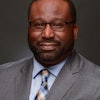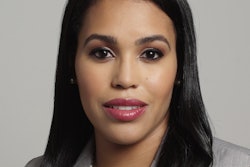 Ronald Thorpe, president of the National Board for Professional Teaching Standards, says “it’s very hard to teach in ways that you haven’t yet learned yourself.”
Ronald Thorpe, president of the National Board for Professional Teaching Standards, says “it’s very hard to teach in ways that you haven’t yet learned yourself.”The rapidly advancing technological era has undoubtedly changed the demands of the higher education system, especially as it pertains to grooming students for the workforce. Although this responsibility of modernizing the educational system is not pinned solely on administration, it lies heavily in the hands of educators as several research efforts have evaluated the need for teacher preparation in the digital era.
According to Ronald Thorpe, president and CEO of the National Board for Professional Teaching Standards, the glitch in teacher preparation is not in teachers’ resistance to change, but rather in their lack of experience with digital learning standards. Thorpe remarked, “With teaching especially, it’s very hard to teach in ways that you haven’t yet learned yourself.”
Thorpe further explained that the profession of teaching is “inextricably bound with [digital] learning, as they complement each other.” This relationship poses teaching barriers, particularly because a professor’s classroom experience tends to echo his or her own academic training, which is ultimately, he says, a stale, outdated practice that doesn’t necessarily match the modern demands of jobs. As jobs begin to welcome more multimedia presentations and increase their use of digital communication mediums, the requirements for prospective candidates are more technologically centered. Thus, the need for equipping students with digital skills has grown accordingly.
“If we immerse undergraduates, pre-serviced candidates in a world where they are looking at multiple examples of what accomplished teachers look like and how they think, then we can start to change the process that we employ with our students today,” Thorpe said.
Reportedly, the future of “accomplished teachers” will endure more rigorous exigency upon their induction into the field. In addition, the National Board for Professional Teaching Standards will expose future teachers to a virtual classroom, one that utilizes such technologies as online, formative assessments; digital textbooks; online courses; and adaptive software for student evaluation. These technologies are expected to impose critical and analytical thinking, a resource that has received enormous attention in the requests of educational enhancement today.
In order to ensure teacher precision, board administrators implemented a preparatory program referred to as an education teacher performance assessment or edTPA. The assessment program incorporates exams that measure a prospective teacher’s ability to lead classrooms in varying settings, including urban, suburban and rural environments.
Other recommendations have revolved around the idea of longer teacher residency programs in order to distribute leadership for new pathways. Lynne Schrum, dean of the college of human resources and education at West Virginia University, said, “Overwhelmingly, we need strong leaders in the schools. … In teachers, we need risk taking; we need teachers to try new ways of thinking and learning, and some of that requires residency programs.”
In order to instill leadership and innovation, professors need to rethink data around student evaluation measures in order to discover corridors for technologically based education. The role of the professor then needs to adapt into the notion of a teacher as a researcher, according to Schrum.
“I don’t know an effective educator who is not doing evaluation and constant research,” Schrum noted.
This pedagogical transformation of professors as researchers has also elevated the amount of “teacherpreneurs.” In regard to teacherpreneurs, education administrators are interested in seeing professors who design education styles as opposed to those who simply disseminate information through the customary lecture.
In response to the new role of teachers, Thorpe said, “This will sometimes include technology, and oftentimes it will not.”
However, in developing discourse and curriculum around digital teaching and learning standards, the perpetual problem of low teacher retention certainly creates a blockage for this innovative design. According to Barnett Berry, president and CEO of the Center for Teaching Quality, the high turnover rate among professors doesn’t allow enough time for administrators to spend on polishing digital educators from “start to finish.”
“We can’t just slam and smash all these components of time, use of data, tons of reflection, tons of creativity, research-based adaptive pedagogy. We need all these components for prospective teachers in a respective program, but you can’t do this in a four-year program where they are also meeting their general education requirements,” Berry noted.
In offering new and perhaps more effective ways of working amid the predicament of low teacher retention, Berry separates the demands of digital teacher preparation by tailoring the needs at the different levels of the profession. Berry identifies three stages of the teaching profession as ranks that require three levels of preparation.
The first of those is the stage prior to being established as a full-time professor when most novel instructors have minimal course loads and, thus, can manage educational interference in adapting to digital standards. The second stage is the point in time when teachers are “staged” in their profession and can start to fuse such standards into daily lessons through methods of “trial and error.” The third is when instructors reach the degree of board certification and recognition beyond. At this final stage, Berry says, instructors can then take on the role of researcher and, ultimately, “edupreneur.”
Berry said, “Unfortunately, we prepare so many teachers that we don’t need for jobs that don’t exist and in subject areas and fields where there is a shortage. If we could manage the teach-ed labor market and infuse those resources, we could easily afford to do the necessary preparation.”



















